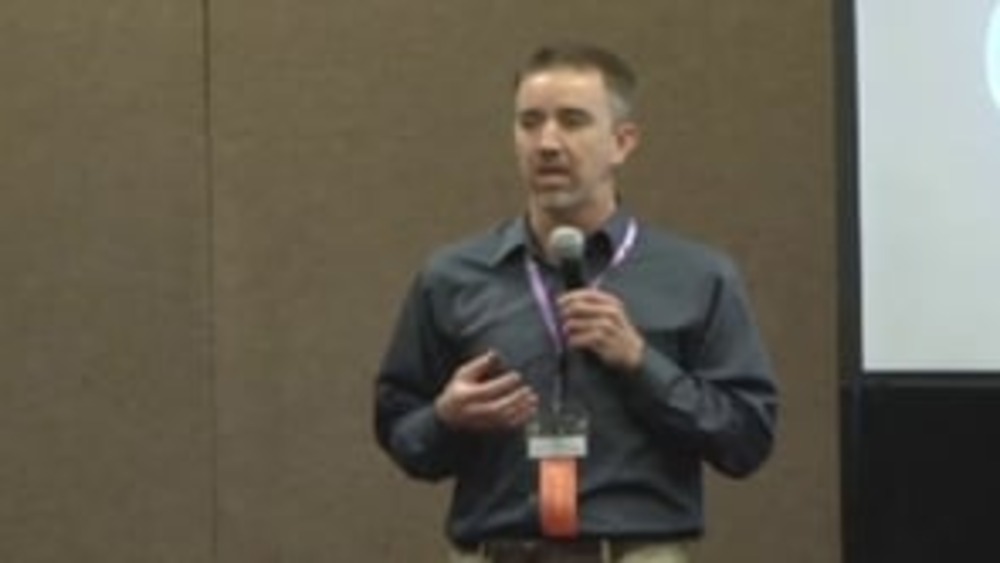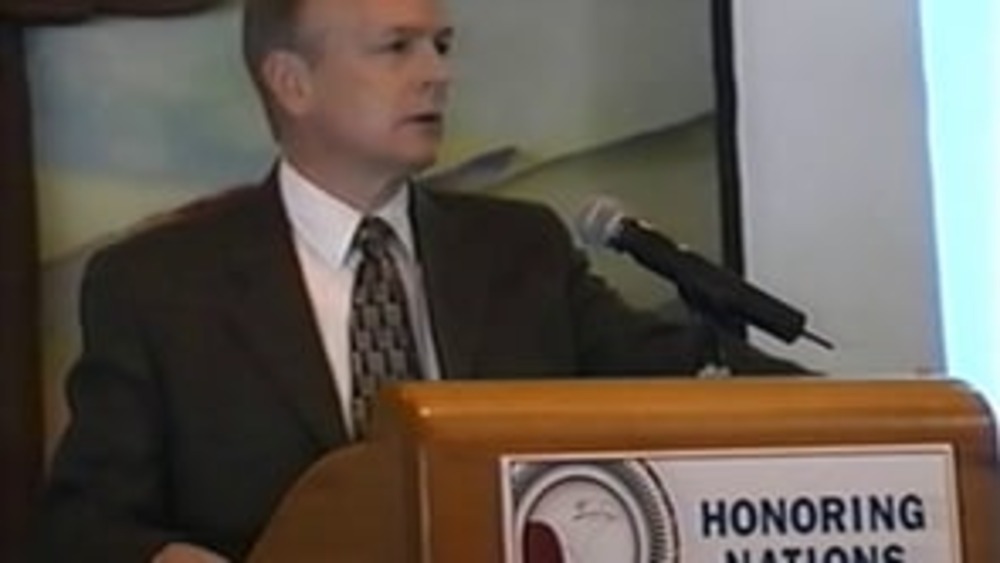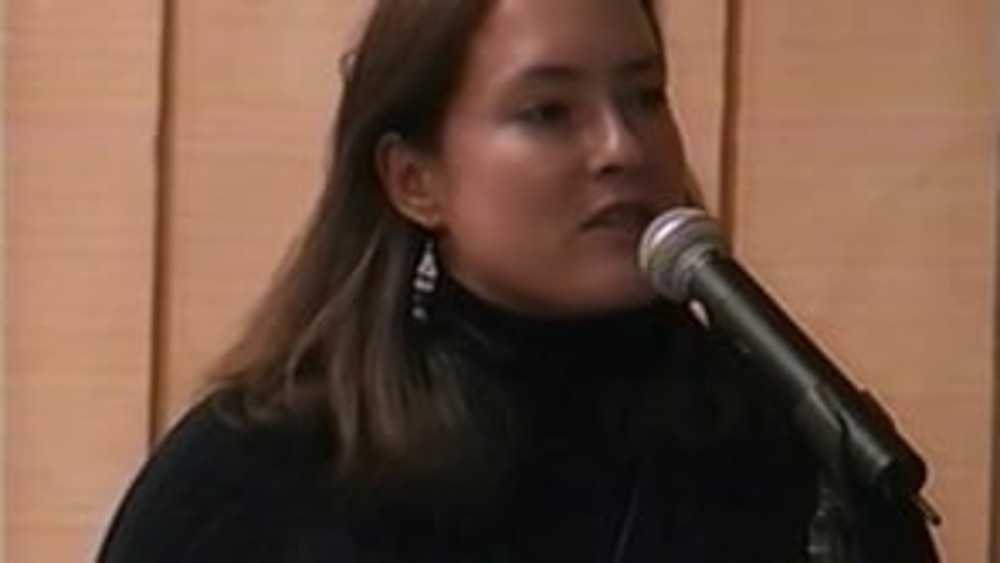Harvard Project on American Indian Economic Development Co-Director Stephen Cornell emphasizes the growth and impact of the Honoring Nations program throughout not only the United States, but the entire world.
Additional Information
Cornell, Stephen. "The Growth of Honoring Nations." Honoring Nations symposium. Harvard Project on American Indian Economic Development, John F. Kennedy School of Government, Harvard University. Cambridge, Massachusetts. September 17, 2009. Presentation.
Transcript
"Thanks, Megan [Hill]. It really is a pleasure to be here with all of you and thank you for doing us the honor of coming and participating in this. And on behalf of the Harvard Project on American Indian Economic Development and our partner organization the Native Nations Institute at the University of Arizona, I want to welcome you to this fourth symposium on Honoring Nations. It's a chance to think about and learn from each other, from the remarkable work that you all are doing, as Indian nations reclaim control over their own futures.
As Chief [Oren] Lyons said, this program is now 11 years old. That's seven cycles of awards honoring and celebrating governance in Indian Country. We've made awards to just over 100 programs. This is the fourth symposium to take stock and kind of think about what we're learning and what we're doing. And I have to tell you, I don't think any of us knew, when we started this 11 years ago, what we were getting into. I don't think we knew what a focus of pride and accomplishment this program would become. We weren't even sure what to call it. And I have to tell you a quick story. I remember -- I think it was 1998 -- a meeting in the offices of the Ford Foundation in New York -- the first meeting of what would become the Board of Governors of Honoring Nations -- and at the time this program was called Best Practices in American Indian Tribal Governance. And some of you, many of you I think, know Pete Zah, former President of the Navajo Nation and a member of the Board of Governors who unfortunately couldn't be here today. But Pete sat in this meeting and he said, 'I think we've got to do something about the name.' And we all said, 'Yeah? what have you got in mind.' And he says, 'You know, where I come from in Indian Country, when you say best practices what you think about is basketball. It's sort of like, you know, last night we had one of the best practices we've ever had.' 'Oh.' So he said, 'Can we do something about the name?' So we talked about it and over the next half hour or so came up with Honoring Contributions in the Governance of American Indian Nations, Honoring Nations for short. And in a way I think at that moment some of us -- certainly this is true for me -- realized for the first time maybe what we actually were doing. We were honoring, we were paying homage in a sense, to those nations, those of you in this room, who were reclaiming and kind of re-igniting an Indigenous tradition of governance, because that's what Honoring Nations is about. It's about an Indigenous tradition of self-rule, of governance, that is being reclaimed and reframed for the issues that your nations face today, and that's what we're really about.
I want to make three other quick points here. I mentioned that Honoring Nations had made just over 100 awards. I think there's another number which is worth noting. In those seven cycles, we've received almost 600 applications from Indigenous programs, organizations and initiatives all across Indian Country from 229 nations. That's a window on what's happening in Indian Country today. On a wave of innovation and critical work that is moving across Indian Country as nations take up the tough tasks of governance. And I think it's also an affirmation of self-determination. It basically says, if you put genuine decision-making power in the hands of communities and nations, and if they are accountable to themselves and each other for the decisions they make, and if you allow them to talk with each other and learn from each others' experience, they will tackle problems -- that other policy makers have failed to solve for years -- and they'll solve them. And that's what's happening out there.
And the second point is that the world is watching. And I'm serious about that. This past fall in Australia, there was the third cycle of the Indigenous Community Governance Awards, a program inspired by Honoring Nations. About five years ago, we brought some aboriginal Australians to an Honoring Nations ceremony and awards program at NCAI [National Congress of American Indians] and they listened to what you were doing. And they listened to this celebration of Indigenous governance and they went back and they started a program of their own. We've got here Sheldon Tetreault and Michele Guerin from the National Center for First Nations Governance in Canada. Two months ago, Megan Hill and Miriam Jorgensen and I were having breakfast with them, talking about what would it take to start a program like this in Canada to recognize a similar wave moving through First Nations there -- who again are reclaiming that Indigenous tradition of self-rule of governance. At the last Honoring Nations awards ceremony this past fall, more than a dozen nations, Indigenous representatives, appeared to listen to what was happening here. So across the world Indigenous peoples are also taking on that governance task and they want to know what you're doing. So the world is watching.
And finally, the lessons that you have to teach are not just Indian Country lessons. The problems that you're dealing with aren't Indian problems, they aren't reservation problems; they're the problems that human societies face everywhere. How do you govern well? How do you provide justice and well being to your people? How do you balance culture, economy, past, present, future and put all that together? How do you protect the things that your people cherish while at the same time you try to change the things that need to be changed? How do you create a viable future for your children and their children? That's stuff all of us deal with and all of us need to be paying attention to what you're doing and what you're saying. So thanks to all of you for being here. On behalf of us who work in this program, welcome."



